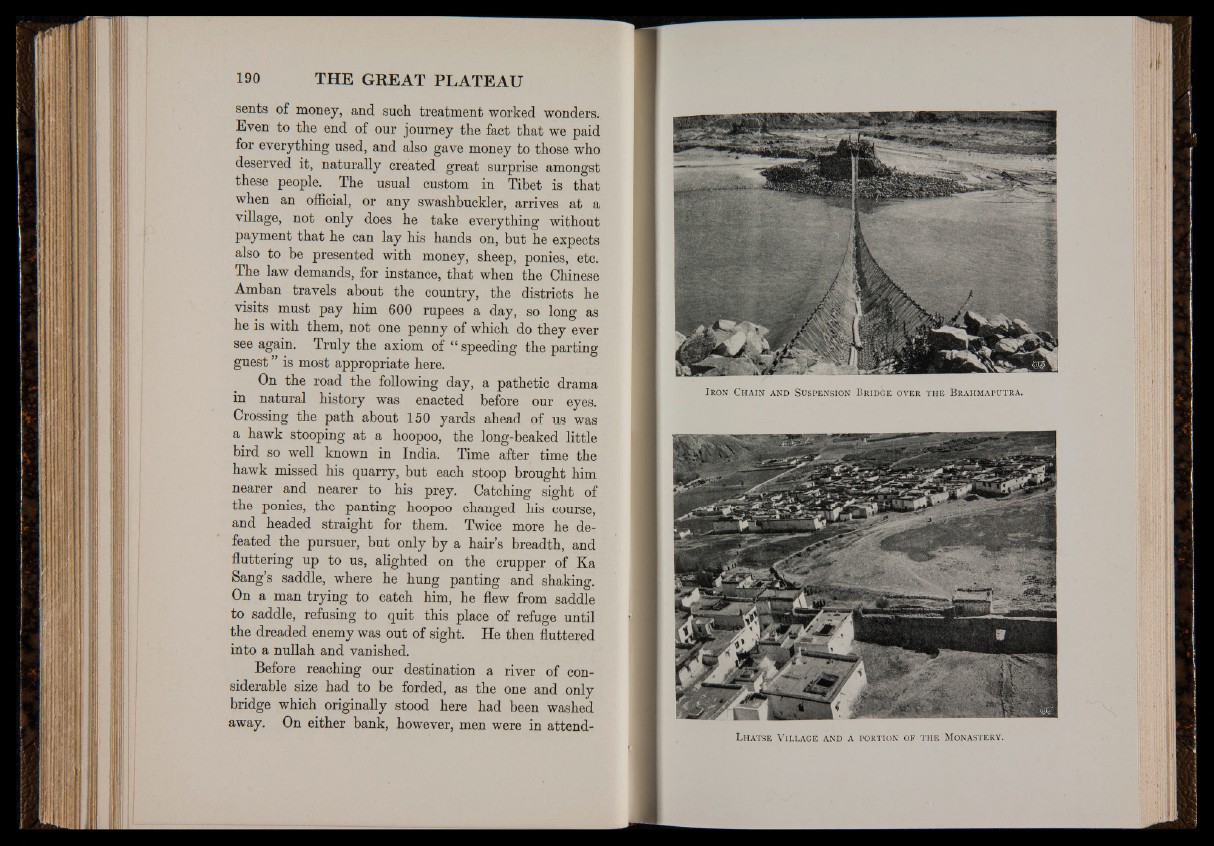
sents of money, and such treatment worked wonders.
Even to the end of our journey the fact that we paid
for everything used, and also gave money to those who
deserved it, naturally created great surprise amongst
these people. The usual custom in Tibet is that
when an official, or any swashbuckler, arrives at a
village, not only does he take everything without
payment that he can lay his hands on, but he expects
also to be presented with money, sheep, ponies, etc.
The law demands, for instance, that when the Chinese
Amban travels about the country, the districts he
visits must pay him 600 rupees a day, so long as
he is with them, not one penny of which do they ever
see again. Truly the axiom of “ speeding the parting
guest ” is most appropriate here.
On the road the following day, a pathetic drama
in natural history was enacted before our eyes.
Crossing the path about 150 yards ahead of us was
a hawk stooping at a hoopoo, the long-beaked little
bird so well known in India. Time after time the
hawk missed his quarry, but each stoop brought him
nearer and nearer to his prey. Catching sight of
the ponies, the panting hoopoo changed his course,
and headed straight for them. Twice more he defeated
the pursuer, but only by a hair’s breadth, and
fluttering up to us, alighted on the crupper of Ka
Sang’s saddle, where he hung panting and shaking.
On a man trying to catch him, he flew from saddle
to saddle, refusing to quit this place of refuge until
the dreaded enemy was out of sight. He then fluttered
into a nullah and vanished.
Before reaching our destination a river of considerable
size had to be forded, as the one and only
bridge which originally stood here had been washed
away. On either bank, however, men were in attendL
h a t s e V il l a g e a n d a p o r t io n o f t h e M o n a s t e r y .